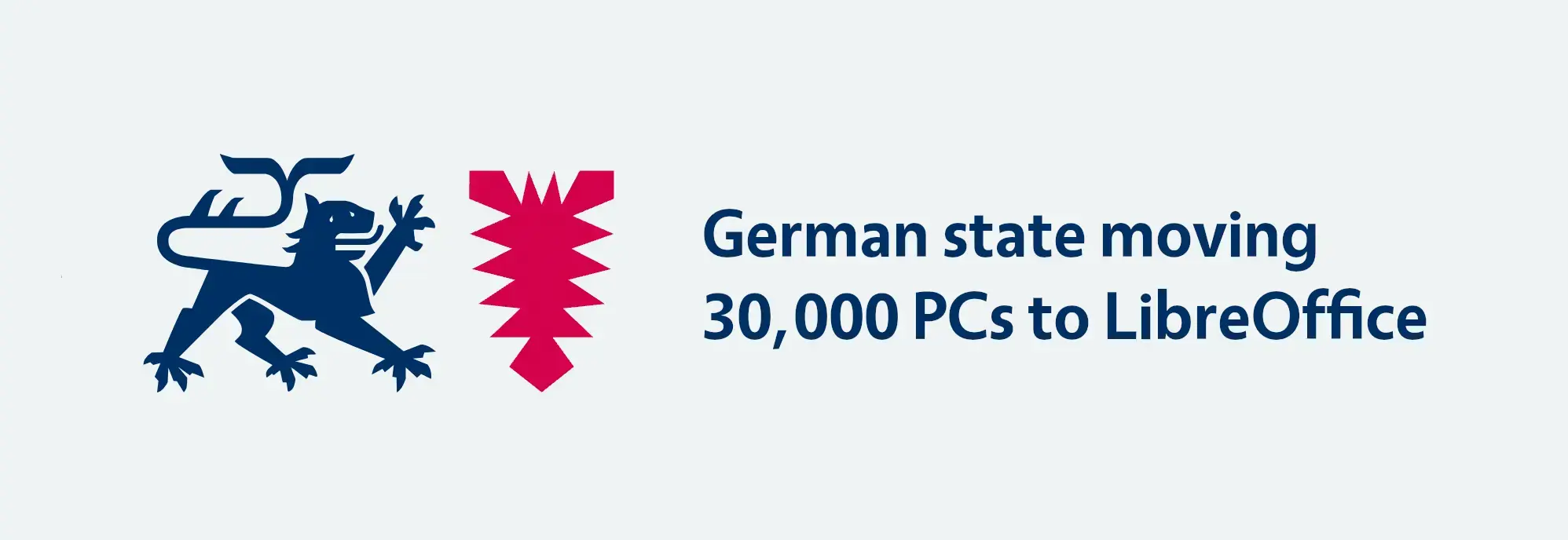Schleswig-Holstein, the northern German federal state, will be a digital pioneer region and the first German state to introduce a digitally sovereign IT workplace in its state administration. With a cabinet decision to introduce the open-source software LibreOffice as the standard office solution across the board, the government has given the go-ahead for the first step towards complete digital sovereignty in the state, with further steps to follow.
The some 30,000 public employees will replace Microsoft Office with LibreOffice, Windows with a yet-to-be-determined Linux desktop distro, and use Nextcloud, Open Xchange/Thunderbird, and the Univention Active Directory (AD) connector to replace Sharepoint and Exchange/Outlook. The state also intends to replace Telekom-Flexport by an Open Source solution.
“The use of open source software also benefits from improved IT security, cost-effectiveness, data protection, and seamless collaboration between different systems,” says Dirk Schrödter, digitalization minister for the German state of Schleswig-Holstein.
“We have no influence on the operating processes of [proprietary] solutions and the handling of data, including a possible outflow of data to third countries,” he adds.
“We have a great responsibility towards our citizens and companies to ensure that their data is kept safe with us, and we must ensure that we are always in control of the IT solutions we use and that we can act independently as a state.”
As The Document Foundation, the organization backing LibreOffice, put it, “The term digital sovereignty is very important here. If a public administration uses proprietary, closed software that can’t be studied or modified, it is very difficult to know what happens to users’ data.”



Most specialized software are web apps running in a browser hosted on the cloud these days. I’m sure they exist, but I couldn’t name any HR, ERM, CRM, … software that’s not a web app.
The desktop OS is becoming irrelevant. That’s why those who want a Mac or Linux notebook can make it work, at least from a purely technical point of view; i.e. if the company allows it. That’s also, why there will never be a year of the Linux desktop. (I mention Macs here, because while OS X gets some commercial software that you won’t get on Linux, it’s not that much outside of some niches)
There will never be a year of the Linux desktop because you gain very little from replacing Edge on Windows with Firefox on Linux (a different software that does the same thing). However, you loose some specialised software and your IT supplier, your IT service provider, half of your IT staff and some of your non-IT employees’ skills. This does not sound like a good business case.
Linux on the desktop never happened, because Linux on the server replaced desktop applications.
I understand your perspective but from a privacy* and cost perspective it would still be favourable for governments, companies and individuals if you run a Linux desktop instead of Windoge even if you only use it to run webapps, I think.
Plus govs / companies would have an incentive to make Linux desktop more secure / user-friendly if they’d use them instead of just giving MS money without having a say in the products.
*not even / only the “there is no malware on Linux” - which is untrue, see the recent xz thing - and would be worse if it got used more but esp from the ad-/spyware build into MS products.